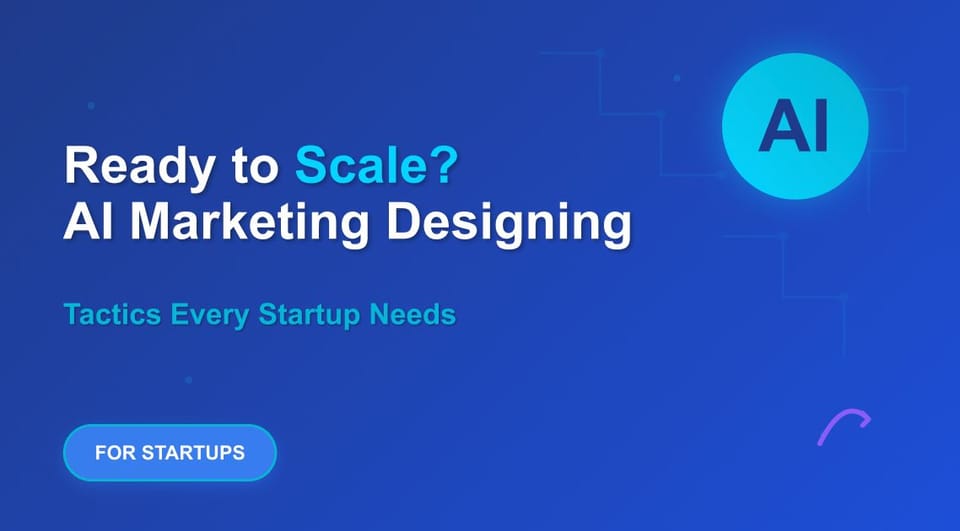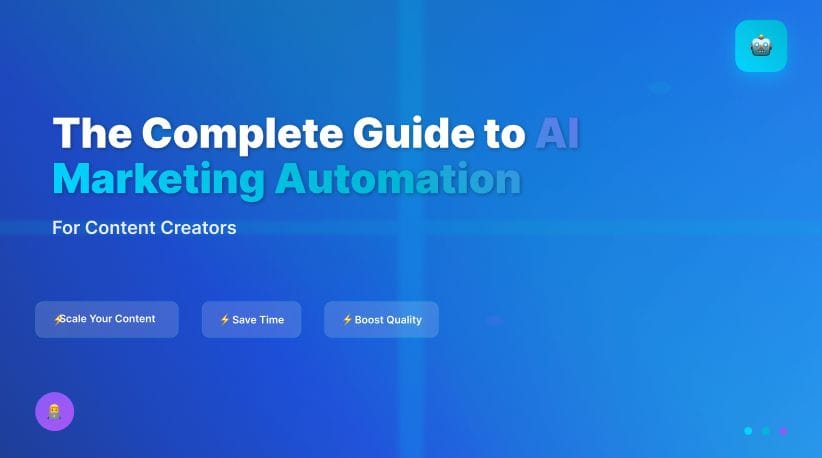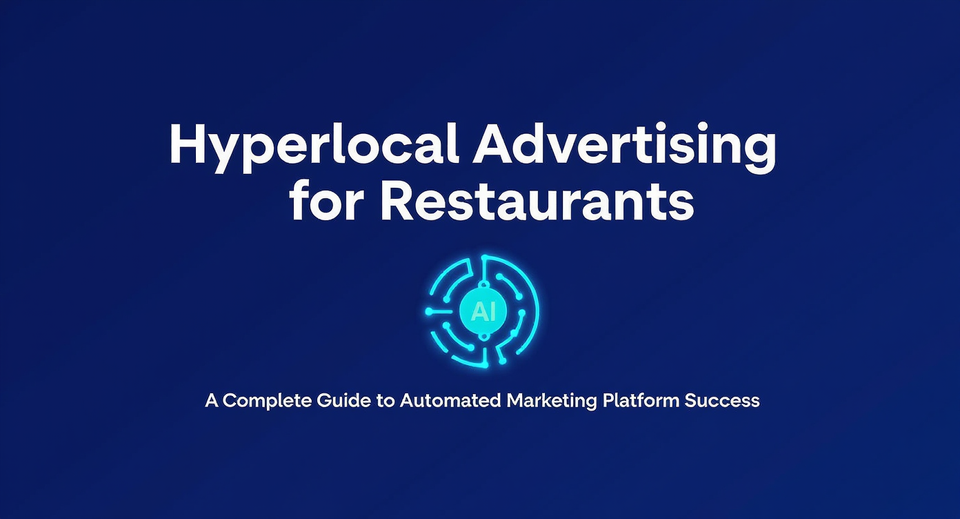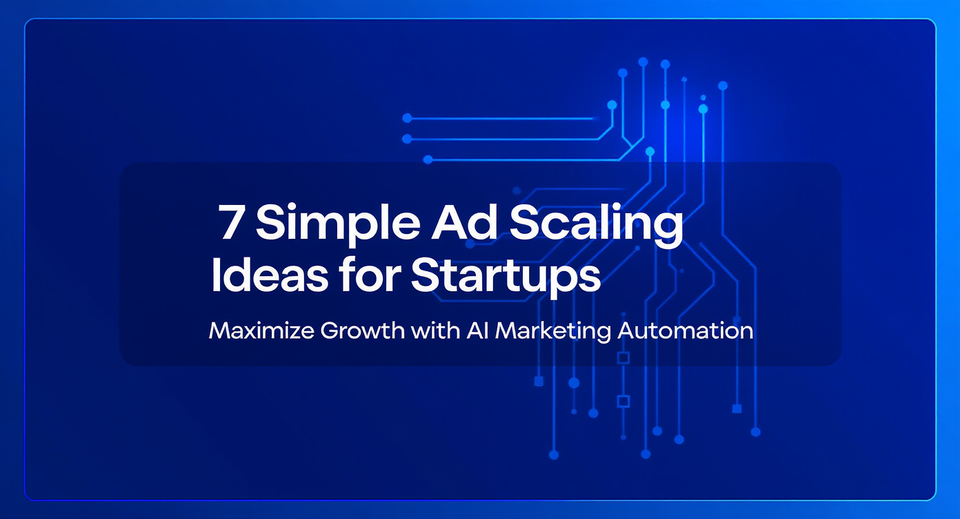Mastering Gen Z E-commerce Ads: AI Marketing Automation Strategies for Authentic Digital Engagement
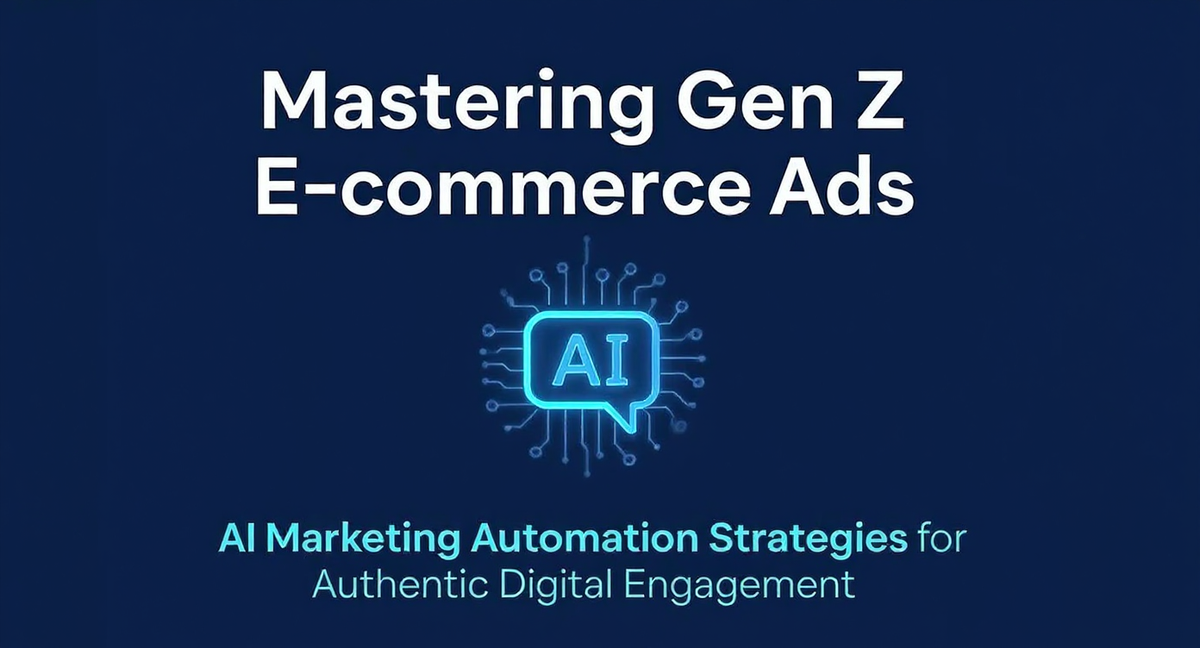
Gen Z represents the first truly digital-native generation with unprecedented purchasing power. Born between 1997 and 2012, this demographic is reshaping e-commerce with distinct preferences and behaviors that demand specialized marketing approaches and AI marketing automation tools.
Let's explore effective strategies to connect with Gen Z consumers through e-commerce advertising that drives engagement and conversions using advanced automated marketing platforms.
1. Understanding Gen Z Shopping Behaviors
Digital-First Experience Gen Z has never known a world without smartphones and social media. They seamlessly navigate between platforms and expect brands to do the same. According to research, 60% of Gen Z won't use apps or websites that are slow to load or difficult to navigate, making AI brand management software essential for creating seamless experiences.
Value-Driven Purchasing Despite assumptions about youthful impulsivity, Gen Z consumers are remarkably pragmatic. Studies show that 86% of Gen Z compare prices and features on e-commerce websites before buying, and 95% read product descriptions, reviews, and ratings before making a purchase.
Social Commerce Adoption For Gen Z, social media and shopping are inseparable. Instagram, TikTok, and YouTube aren't just entertainment—they're primary shopping research channels. Approximately 97% of Gen Z consumers use social media as their top source of shopping inspiration, creating opportunities for AI content creation tools to generate platform-specific content.
2. Creating Effective Ad Content for Gen Z
Authenticity Above All: Gen Z has finely-tuned authenticity detectors. They prefer unfiltered, genuine content over polished corporate messaging. User-generated content is 50% more trustworthy to Gen Z compared to traditional branded content, which is why marketing campaign builders must incorporate authentic elements.
Short-Form Video Dominance:With attention spans averaging 8 seconds, Gen Z responds best to concise, visually engaging content. TikTok-style videos under 30 seconds generate up to 90% higher completion rates than longer formats, making automated marketing platforms ideal for producing multiple video variations.
Personalization Expectations :Generic messaging falls flat with Gen Z. They expect brands to understand their preferences and deliver relevant content. Personalized e-commerce ads created through AI marketing automation see significantly higher engagement rates among Gen Z consumers compared to generic campaigns.
Advanced AI content creation tools enable brands to launch thousands of personalized ad creatives tailored specifically to Gen Z preferences, helping you deliver the authentic, personalized content this demographic demands.
3. Platform-Specific Strategies for Gen Z
TikTok: The Gen Z Powerhouse: TikTok has become the definitive platform for reaching Gen Z, with 60% of its users belonging to this generation. Successful TikTok e-commerce ads embrace platform-native content styles—authentic, trend-aware, and entertainment-focused rather than sales-driven. Marketing campaign builders with TikTok-specific templates can streamline this process.
Instagram: Visual Discovery Engine: While slightly less dominant with Gen Z than TikTok, Instagram remains crucial for e-commerce discovery. Shoppable posts and Instagram Stories drive significant purchase intent among Gen Z users, with carousel ads showing 30% higher engagement than single-image posts.
YouTube: The Research Hub: YouTube serves as an important product research destination for Gen Z, with approximately 47% using the platform to learn about products before purchasing. Tutorial-style ads created with AI content creation tools and authentic creator partnerships generate significantly higher conversion rates than traditional advertising formats.
4. Messaging That Resonates with Gen Z
Social Responsibility:
Gen Z expects brands to take stands on social issues. According to Cone Communications, 94% of Gen Z believes companies should address social and environmental issues, and 76% have purchased or would consider purchasing from a brand to support the issues it stands for.
Inclusive Representation:
Diversity isn't optional for Gen Z—it's expected. Ads featuring diverse representation see 83% higher consumer preference with this demographic, who value authentic inclusion across race, gender, sexuality, and ability. AI brand management software can help ensure consistent representation across campaigns.
Humor and Cultural Relevance:
Gen Z appreciates brands that can authentically participate in internet culture. Ads incorporating relevant memes, trends, and humor see approximately 60% higher engagement rates among Gen Z audiences, making automated marketing platforms with trend-monitoring capabilities invaluable.
5. Technical Optimization for Gen Z Ads
Mobile-First Design:
With 98% of Gen Z owning smartphones and spending an average of 4+ hours daily on mobile devices, all ad content must be optimized for mobile viewing. Vertical video formats see 90% higher completion rates than horizontal videos among Gen Z viewers.
Fast Loading Speeds:
Gen Z has zero patience for technical friction. According to Google, 53% of mobile site visits are abandoned if pages take longer than three seconds to load. Lightweight, fast-loading ad experiences are non-negotiable and can be optimized through AI marketing automation.
Interactive Elements:
Interactive ads that invite participation rather than passive viewing generate significantly higher engagement rates with Gen Z. Polls, quizzes, and swipeable features transform advertising from interruption to interaction, features readily available in advanced marketing campaign builders.
Modern AI content creation tools allow brands to create algorithm-optimized ad creatives specifically designed for Gen Z engagement, with dynamic templates that enable rapid experimentation with messaging, visuals, and CTAs.
6. Measuring Success with Gen Z Campaigns
Beyond Traditional Metrics:
While conversions matter, engagement metrics often provide better insights into Gen Z campaign performance. Track shares, saves, comments, and time spent with content alongside traditional conversion metrics using automated marketing platforms.
Sentiment Analysis:
Gen Z's response to advertising extends beyond clicks to conversations. Implement AI brand management software with sentiment analysis tools to monitor how your brand is discussed across platforms after campaign launches.
Iterative Optimization:
Gen Z trends evolve rapidly. Successful campaigns implement continuous testing and optimization cycles, with high-performing brands adjusting creative elements weekly based on performance data from AI marketing automation tools.
7. Leveraging AI for Gen Z Creative Personalization
Creative as Targeting:
Modern ad platforms rely less on demographic targeting and more on creative relevance. Advanced marketing campaign builders use a "Creative as Targeting" approach to personalize ad content specifically for Gen Z audiences, allowing algorithms to match your message to the right users within this demographic.
Scaled Personalization:
Gen Z expects personalized experiences but maintains high standards for authenticity. AI content creation tools enable brands to produce thousands of personalized variants while maintaining consistent brand voice and quality.
Performance Feedback Loops:
The most successful Gen Z campaigns implement real-time performance feedback to continuously optimize creative elements. Automated marketing platforms with built-in insights and iteration capabilities allow brands to track not just segments but creative styles, tone, and messaging effectiveness specifically for Gen Z audiences.
Conclusion:
Successfully targeting Gen Z in e-commerce advertising requires understanding their unique characteristics and preferences. By embracing authenticity, personalization, and platform-native content approaches through AI marketing automation, brands can forge meaningful connections with this influential demographic.
Remember that Gen Z values brands that respect their intelligence, share their values, and speak their language authentically. With the right strategies and AI content creation tools, e-commerce brands can create advertising that resonates with Gen Z and drives sustainable growth.
FAQs: Q: What age group does Gen Z include?
A: Gen Z typically refers to individuals born between 1997 and 2012, making them approximately 10-25 years old in 2022.
Q: How can AI marketing automation improve Gen Z targeting?
A: AI marketing automation tools can analyze Gen Z preferences, create personalized content at scale, and optimize campaigns in real-time based on performance data across multiple platforms.
Q: How important is social responsibility to Gen Z consumers?
A: Extremely important—94% of Gen Z believes companies should address social and environmental issues, and 76% make purchasing decisions based on brand values.
Q: What type of content can AI content creation tools produce for Gen Z?
A: AI content creation tools can produce authentic, short-form video content, personalized messaging, platform-specific creative assets, and interactive elements that resonate with Gen Z audiences.
Q: How can automated marketing platforms ensure Gen Z advertising is authentic?
A: Advanced marketing campaign builders can incorporate user-generated content, create variations that feel native to each platform, and help brands maintain consistent values across all touchpoints with Gen Z consumers.
Citations:
- IBM Institute for Business Value. "Gen Z brand relationships: Authenticity matters." https://www.ibm.com/downloads/cas/8KRGPKAM
- McKinsey & Company. "True Gen: Generation Z and its implications for companies." https://www.mckinsey.com/industries/consumer-packaged-goods/our-insights/true-gen-generation-z-and-its-implications-for-companies
- Pew Research Center. "Gen Z, Social Media & Technology." https://www.pewresearch.org/internet/2018/05/31/teens-social-media-technology-2018/
- Cone Communications. "2017 Gen Z CSR Study." https://www.conecomm.com/research-blog/2017-genz-csr-study
- Google. "Mobile Page Speed New Industry Benchmarks." https://www.thinkwithgoogle.com/marketing-strategies/app-and-mobile/mobile-page-speed-new-industry-benchmarks/
- Market.us. "Gen Z Social Media Usage Statistics." https://market.us/statistics/social-media/gen-z-social-media-usage/

